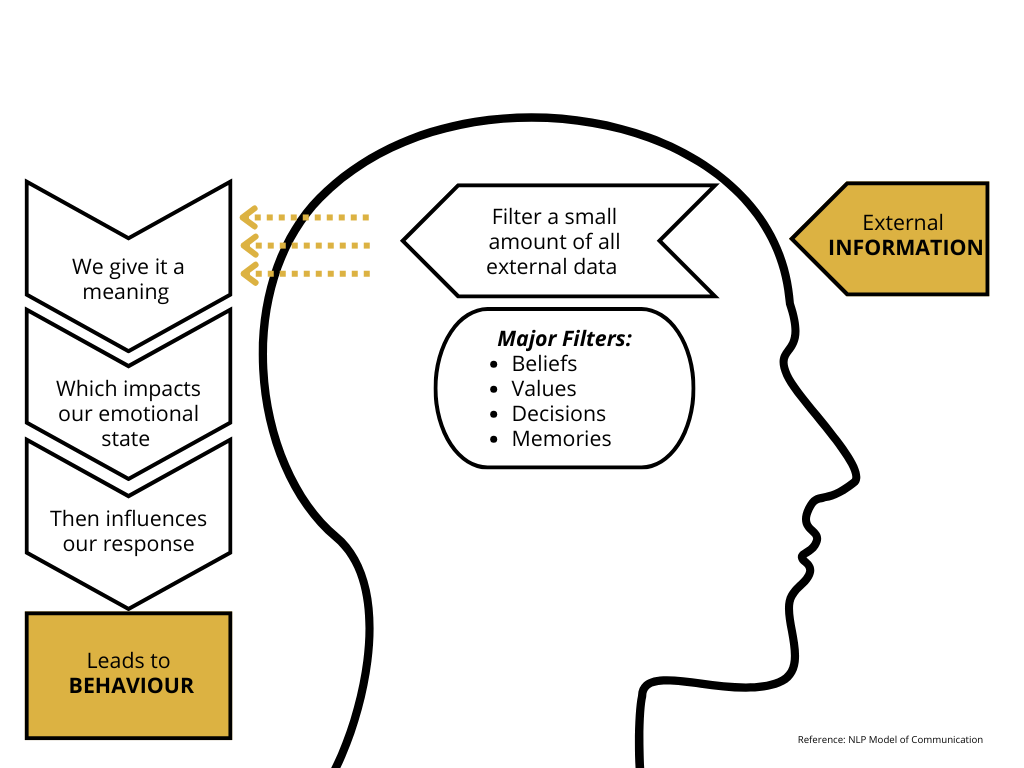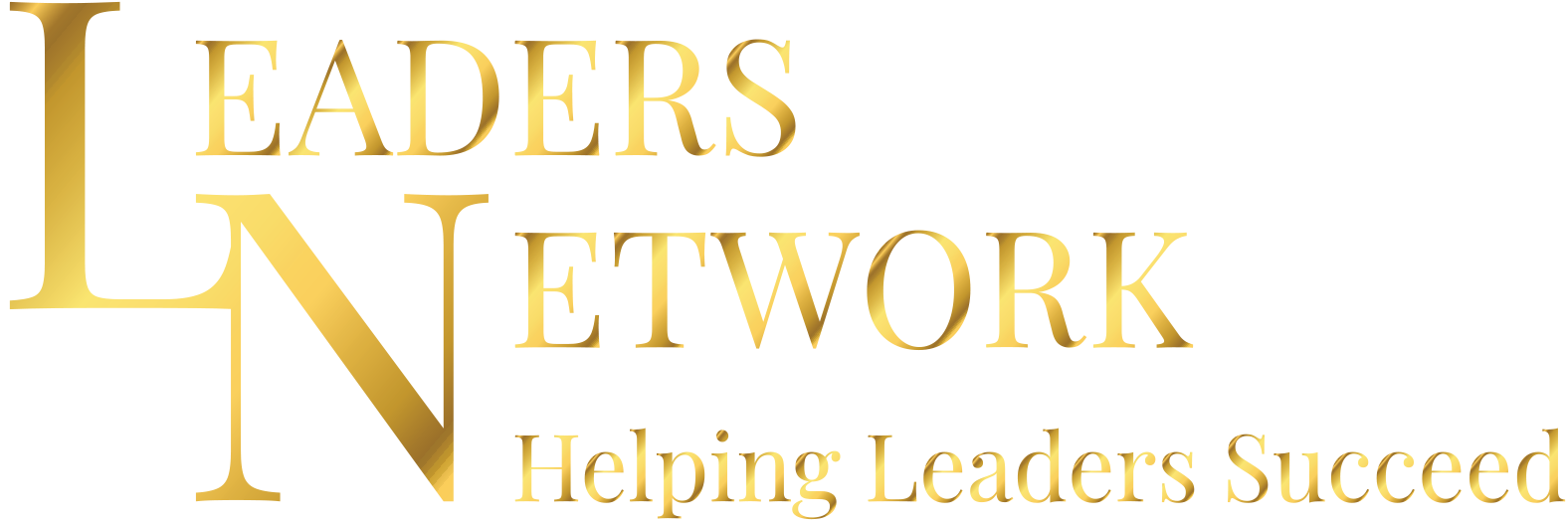Get in touch
Phone: 0438 101 090 / 0408 564 260
Email: hello@leadersnetworkgroup.com.au
The Power to Give Meaning is Yours
An explanation of how we process external information and how it shapes our thoughts and actions.
You might have heard phrases like, ‘What you focus on is what you get,’ ‘Your thoughts create your reality,’ or ‘Nothing has meaning except the meaning you give it.’ While these phrases can sometimes seem fluffy, they are backed by neuroscience.
Numerous studies have been carried out on how our brains function and how our thinking is influenced. Richard Bandler and John Grinder, the pioneers of the NLP (Neuro-Linguistic Programming) Model of Communication, are amongst these researchers. This model demonstrates how we perceive external information and how it affects our thoughts and actions.

“Nothing in life has any meaning except the meaning you give it.” Tony Robbins
To explain, we gather external data through our senses—sight, taste, sound, touch, or smell—which is purely raw data. At this stage, this raw data holds no meaning for us, as it is simply data. Our brains then process this external information, assigning it meaning, and we subsequently act based on that meaning. As Tony Robbins famously said, “Nothing in life has any meaning except the meaning you give it.”
This phrase conveys that life doesn't inherently possess meaning. The significance we assign to events, experiences, and situations depends solely on our interpretations and perspectives. Essentially, we shape our own meaning in life through our choices and how we perceive things.
Recognising that our brains can’t handle all the external information bombarding us at once is crucial. Consequently, we (our brains) delete, distort, and generalise most of it, concentrating only on what we consider essential.
So how do our brains decide what is essential?
Numerous factors shape our perceptions of the world and the meanings we attribute to things. Some of the key ones include:
Our beliefs shape our understanding of truth. For example, if you perceive opportunity in every challenge, you’ll tackle them more optimistically, actively searching for solutions. This contrasts with someone who sees challenges as setbacks and sources of failure.
Our values reflect what we care about most. For instance, if you value your health, it will affect how you view exercise or choose ‘healthy’ foods, ultimately influencing your actions.
Our Critical decisions which include recent choices. For example, if you decide to cut down or completely stop your alcohol consumption, educate yourself on what this involves and the adjustments you need to make to reach your goal. As you start your research, you’ll discover a wealth of information on this topic, and your choice to proceed will shape the importance you place on achieving this goal.
Our memories may be factual or fabricated. For instance, if you had a terrifying experience with a Rottweiler while growing up, that memory will likely significantly impact how you feel when you see one again.
Once our brain determines that something is ‘important’ based on the main influencing factors mentioned above, it sets to work doing the following:
- Gives it a meaning (or an internal representation); this then
- Influences our emotional states as our thoughts create our feelings; then it
- It impacts our physiology—the way our body responds. For example, if the meaning is given as a ‘scary thing,’ our hearts might race, we might get goosebumps, etc. And then…
- We will act in line with how we think, feel, and physically respond.
Let’s put this together with the rottweiler example:
- Person sees rottweiler (external data accessed through sight)
- The brain selects certain data for attention because it is associated with specific memories (memories play a significant role in guiding the brain’s focus on this data).
- The meaning implied is that this is not safe (internal representation)
- Feeling scared (state)
- Goosebumps rise on the body, and the heart accelerates (physiology)
- Run (action/behaviour evoked because of the meaning given).
This shows why two people observing the Rottweiler might respond entirely differently. Their choices, memories, beliefs, and values shape their perspectives.
A couple of things to note. If we don’t decide what to focus on and what meaning to assign to things, our hard wiring will probably lead us to revert to negative or risk-averse thinking. This mindset has its place, but not all the time. Growing and creating results requires some optimistic thinking and courageously acting.
Applying this to create what you want in life
You can choose the meaning you assign to things if you don’t simply allow your mind to operate subconsciously. Instead, you actively engage with your beliefs, thoughts, and the meanings you wish to attribute to various things.
To create more of what you desire, concentrate on what you wish to have more of.
"What you focus on grows, what you think about expands, and what you dwell on determines your destiny.” Robin S. Sharma
Want to expand your thinking and take your leadership to the next level?
Schedule your free 45-minute consultation
today!





